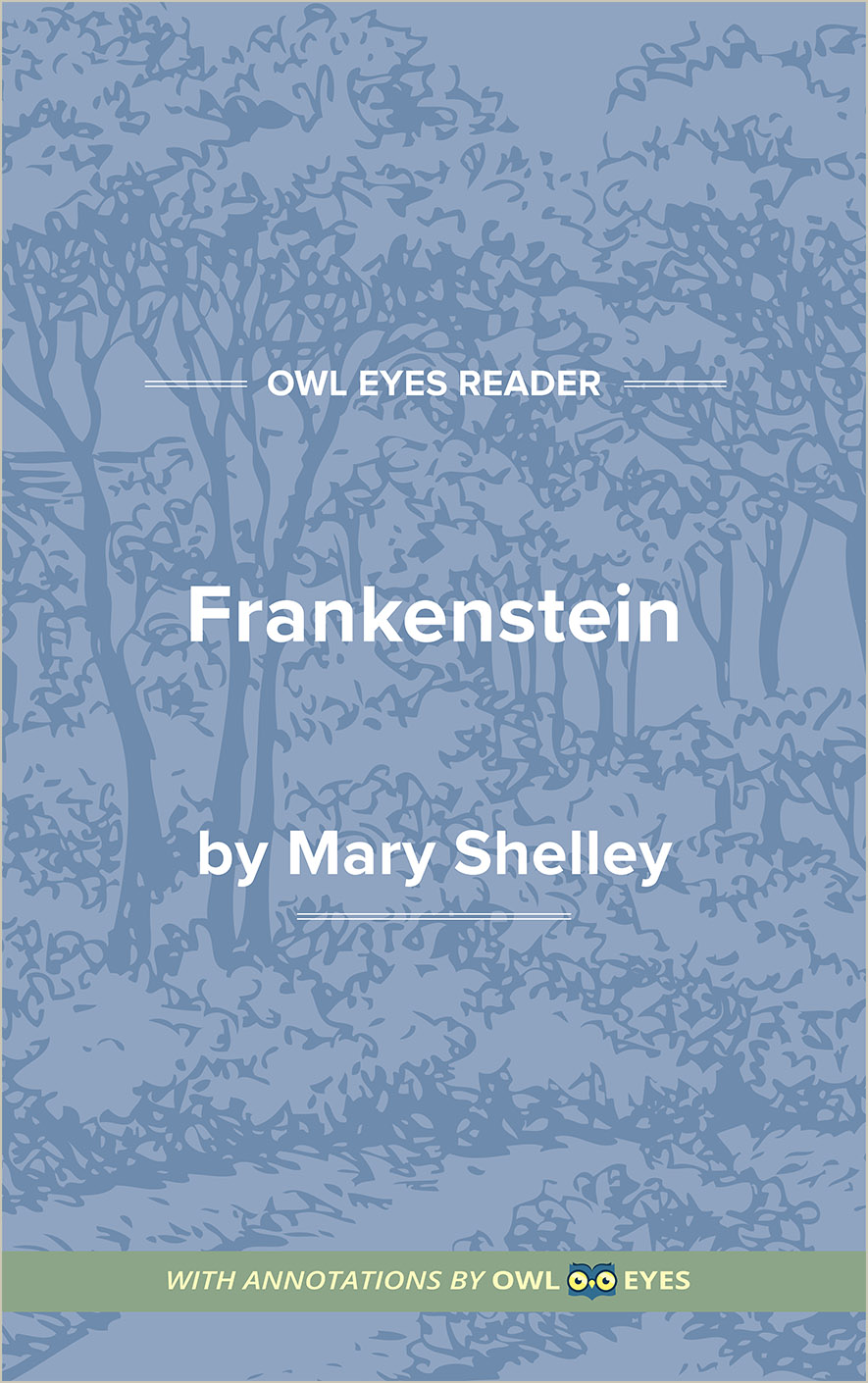Analysis Pages
Allusion in Frankenstein
Genesis: In the Bible, the book of Genesis tells the Judeo-Christian creation myth. In it, God creates Adam, the first man, and then God then creates animals to keep Adam company. God soon realizes that Adam needs a creature that matches his intelligence, so he creates Eve, the first woman, out of Adam’s rib. Adam and Eve live in paradise but are forbidden from eating from the tree of knowledge in the Garden of Eden. However, Satan convinces Eve to eat an apple from the tree, causing both Adam and Eve to fall from grace. Similarly, Frankenstein’s creature requests a mate from his maker to match his hideous physical appearance. In Shelley’s novel, Frankenstein represents an indifferent, neglectful god who creates a life and then abandons it to a cruel world. This can be interpreted as commentary on the Genesis story, as God creates beings, allows them to be tempted, and then casts them into a cruel world for defying expectations. The allusion to Genesis also touches on the theme of a fall from grace that affects every character in the novel.
Prometheus: In Greek mythology, the Titan Prometheus creates humanity. To help his creations progress, he steals fire from the gods and gives it to humans against Zeus’s wishes. This fire sparks industry and a loss of innocence for this race. Zeus punishes Prometheus by chaining him to a rock and sending an eagle to eat his liver every day. The subtitle for this Shelley’s Frankenstein is the phrase “or the Modern Prometheus.” Frankenstein is the “modern Prometheus” who steals god’s power to create life. For stealing this power, he is punished, much like Prometheus is punished for stealing fire from the gods.
Paradise Lost: Written in 1667, Paradise Lost is John Milton’s epic poem. It consists of 12 books and details the fall of Adam and Eve from the Garden of Eden. The first two books focus on Satan and his host directly after they are thrown into hell for rebelling against God. In this story, Satan is given motivations that explain his decision to challenge God. His pride and vanity make him believe that he would be a better ruler in heaven. The creature in Shelley’s Frankenstein often compares himself to the “Arch-fiend.” However, readers should question whether or not Frankenstein actually represents Satan and the insolent pride that makes him believe he could be God.
Allusion Examples in Frankenstein:
Letter I
🔒"Prometheus..." See in text (Letter I)
Letter II
🔒"I am going to unexplored regions, to “the land of mist and snow;” but I shall kill no albatross; ..." See in text (Letter II)
"“Ancient Mariner.”..." See in text (Letter II)
Chapter II
🔒"heroes of Roncesvalles, of the Round Table of King Arthur, and the chivalrous train who shed their blood to redeem the holy sepulchre from the hands of the infidels...." See in text (Chapter II)
Chapter IV
🔒"Life and death appeared to me ideal bounds, which I should first break through, and pour a torrent of light into our dark world..." See in text (Chapter IV)
"I was like the Arabian who had been buried with the dead, and found a passage to life, aided only by one glimmering, and seemingly ineffectual, light...." See in text (Chapter IV)
Chapter V
🔒"it became a thing such as even Dante could not have conceived...." See in text (Chapter V)
"“Like one who, on a lonely road, Doth walk in fear and dread, And, having once turned round, walks on, And turns no more his head; Because he knows a frightful fiend Doth close behind him tread.”..." See in text (Chapter V)
"Like one who, on a lonely road, Doth walk in fear and dread, And, having once turned round, walks on, And turns no more his head..." See in text (Chapter V)
Chapter VI
🔒"Ariosto gives concerning the beauty of Angelica..." See in text (Chapter VI)
Chapter VIII
🔒"I gnashed my teeth,..." See in text (Chapter VIII)
Chapter XI
🔒"Pandæmonium..." See in text (Chapter XI)
"it presented to me then as exquisite and divine a retreat as Pandæmonium appeared to the dæmons of hell after their sufferings in the lake of fire..." See in text (Chapter XI)
"I tried, therefore, to dress my food in the same manner, placing it on the live embers...." See in text (Chapter XI)
"I found a fire which had been left by some wandering beggars..." See in text (Chapter XI)
Chapter XV
🔒"Many times I considered Satan as the fitter emblem of my condition; for often, like him, when I viewed the bliss of my protectors, the bitter gall of envy rose within me...." See in text (Chapter XV)
"Sorrows of Werter..." See in text (Chapter XV)
"Plutarch's Lives..." See in text (Chapter XV)
"Paradise Lost..." See in text (Chapter XV)
"Like Adam, I was apparently united by no link to any other being in existence; but his state was far different from mine in every other respect. He had come forth from the hands of God a perfect creature..." See in text (Chapter XV)
Chapter XVI
🔒"like the arch-fiend, bore a hell within me..." See in text (Chapter XVI)
Chapter XX
🔒"I will watch with the wiliness of a snake, that I may sting with its venom...." See in text (Chapter XX)
Chapter XXIV
🔒"I trod heaven in my thoughts, now exulting in my powers, now burning with the idea of their effects. From my infancy I was imbued with high hopes and a lofty ambition; but how am I sunk!..." See in text (Chapter XXIV)

